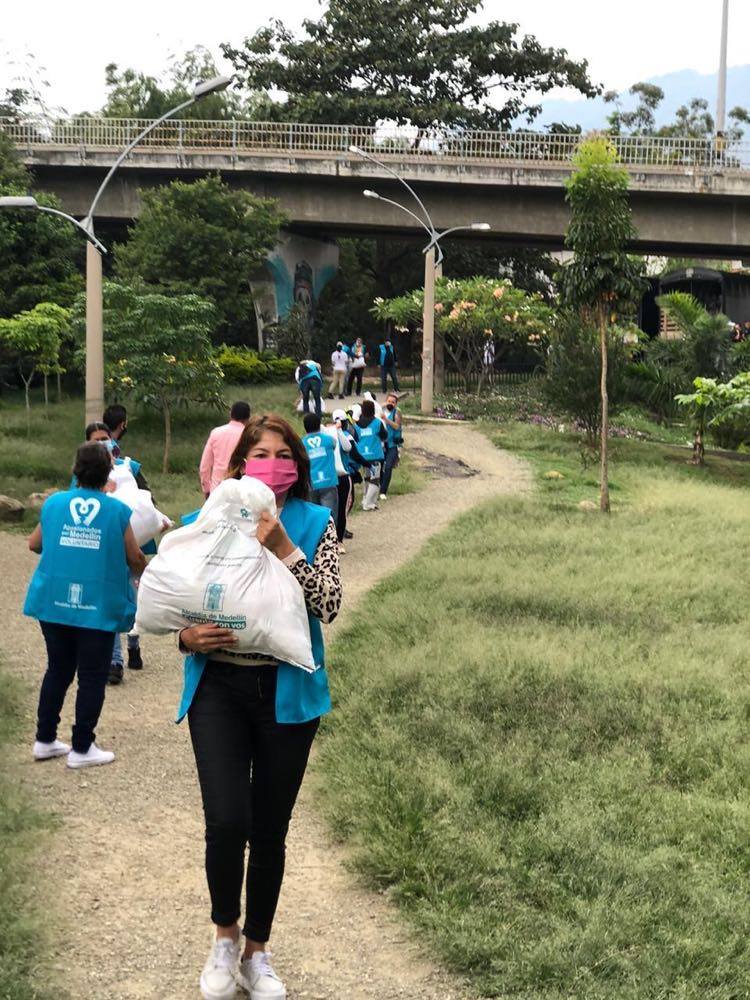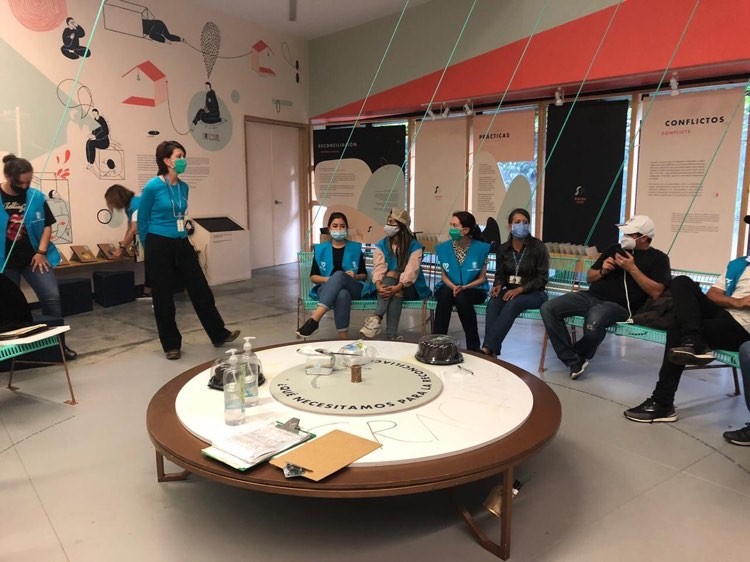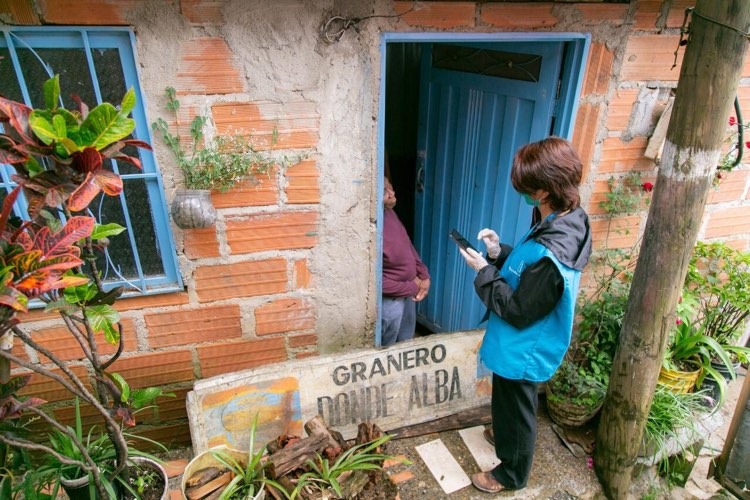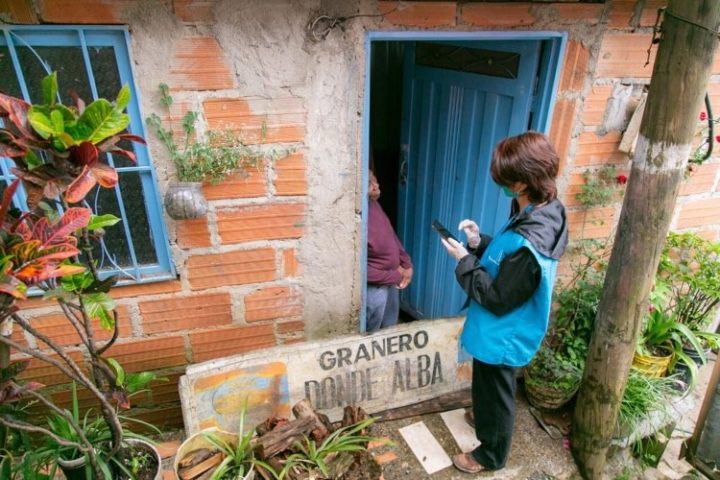
Isabel Dapena | Armando Perla
Museo Casa de la Memoria | City of Medellín
Museums have no borders,
they have a network
May 28, 2020
Keywords: COVID-19; crisis response; community work; field work; social role
The global crisis caused by the arrival of COVID-19 has not only forced us to rethink our daily lives and the way we work, but also to question the systems that have shaped our societies until today. The pandemic has exposed a shocking deficiency in all sectors of our society: medical, political, financial, industrial and cultural. Those who were already vulnerable now must fight to simply stay alive. Human rights defenders working with vulnerable communities have pointed out how groups such as the elderly, asylum seekers, refugees, members of the LGBTQAI+ community, undocumented workers, the homeless and those living in poverty have been disproportionately affected by COVID-19.
Faced with such a scenario, some museums who work closely with their communities have adapted their practices so that they can continue to fulfill their missions. For instance, the House of Memory Museum in Medellín, Colombia, together with the Culture Secretariat of Medellín, were mandated by the mayor’s office of Medellín to lead the COVID-19 strategy in the Commune 8: Villa Hermosa, a neighborhood where different ethnic groups, victims of the Colombian conflict, informal workers, Venezuelan migrants, and displaced communities converge.
The decision by the mayor’s office to include the House of Memory Museum in its strategy against COVID-19 was influenced by the years of community work carried out by the museum in order to build a relationship of trust with the various communities within its surroundings. In light of this commitment, the municipal government saw an opportunity to create a partnership to promptly assist those disproportionately affected by the pandemic. This unique scheme of cooperation between the municipal government and the museum has focused on four areas:


The collaborative work with community leaders in Commune 8 has been essential for the museum to carry out the mandate assigned by the mayor’s office. For instance, the pre-existing relationship of trust between the museum and community leaders has facilitated the identification of families most in need so that the team can assist them promptly.

At the same time, the museum continues to work remotely with the community on an agenda related to memory and peacebuilding, which includes:
The work being carried out in the Commune 8 neighborhood has also created an opportunity for the museum to learn about people’s experiences during quarantine. As a memory museum, the House of Memory Museum is responsible for preserving the memories and stories of those who have been most affected by the pandemic in an ethical and responsible manner.
The House of Memory Museum serves as a reference in a museum sector that is driven more by an obligation to assist and contribute to the betterment of every member of society and less by the desire to develop ‘blockbuster’ exhibitions aimed at pleasing a smaller, elite audience.
The current global health crisis is pushing us, as museum professionals, to radically rethink our sector from a perspective that favours the social role of museums over their previous positioning as elite institutions; and to re-imagine museums both as community spaces existing within and beyond their walls and as key agents that can assist society in times of crisis. The House of Memory Museum in Medellín is showing the way.
Isabel Dapena – Head Curator, Museo Casa de la Memoria
Armando Perla – International Advisor on Museums, Human Rights and Social Inclusion, City of Medellín and Board member, IC-Ethics
References and resources:
More information about the House of Memory Museum
Opinions expressed in the article do not commit ICOM in any way and are the responsibility of its author.
To participate in our newest ICOM Voices call for contributions, click here.
